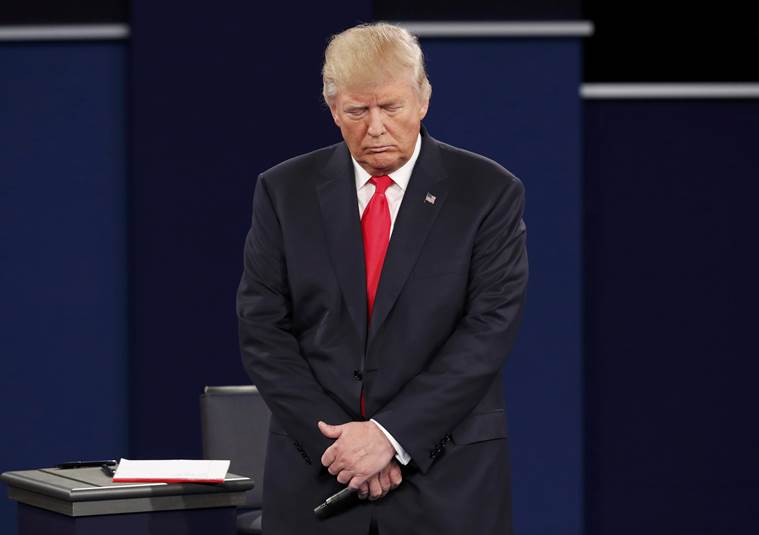Of all the intel contained in the Trump dossier, the piece that may be most surprising (if true) is that Russia was “cultivating and supporting” the Reality TV host for five years in the belief, it would seem, that he had a reasonable chance of becoming President. It’s not likely Trump himself had any idea that his candidacy would last more than a couple of months. If Vladimir Putin really knew the unlikely eventual winner was a solid bet to land in the Oval Office, he should have placed a large wager in Las Vegas two years ago and used the winnings to simply purchase America.
The part that’s least shocking (if true) is that if Trump behaved in any sexually embarrassing or illicit way while in Moscow, the Russians have tape of it. Kremlin kleptocrats rule in good part through intimidation, threatening not only to poison the body but also the name. Once they have dirt on you, you become part of the game, one in which they always make the rules. There have long been rumors of movie actors being secretly filmed in unlawful, compromising positions in Russia–a couple of stars in particular come to mind–so having the goods on a high-profile American businessman and celebrity is something that could come in handy even if he never stepped foot in the White House.
That Putin was directly involved in hacking our elections seems beyond question. The uncertainty is whether there will emerge a smoking gun directly linking the Trump campaign to the Kremlin. It would probably be more surprising if it turns out there was no contact between the two sides.
In a London Review of Books piece, former UK diplomat Arthur Snell doesn’t dismiss the dossier while warning that some parts are sturdier than others. “A small number of the reports appear to contain well-sourced, triangulated intelligence,” he writes. “That does not make them true, but the reader may usefully assume their likelihood while considering wider evidence.”
An excerpt:
The dossier’s most explosive report claims that ‘the Russian authorities had been cultivating and supporting … TRUMP for at least five years,’ and that ‘the TRUMP operation was both supported and directed by Russian President Vladimir PUTIN.’ The same report makes allegations of Trump’s ‘sexual perversion’ (Trump is supposed to have paid prostitutes to urinate on a bed that had been slept in by Barack and Michelle Obama), which the Russians apparently documented in order to possess useful kompromat (compromising material). It explains that two separate sources have attested to a long-term Russian plan to support Trump. One of those sources is a senior figure in the Russian Foreign Ministry, another is a ‘former top level Russian intelligence officer still active inside the Kremlin’. They affirmed the existence of the Russian plan, the report says, while in conversation with ‘a trusted compatriot’. This is an important detail, because it tells us they weren’t speaking to the British author of the report and spinning a line for his benefit, but also because it implies that the chain of information is long, which can easily lead to misunderstandings. A third source, also a Russian official, comments on the Trump operation without demonstrating any specific knowledge about how it was conducted, thereby supplying only limited corroboration. There’s a further allegation that ‘the Kremlin had been feeding TRUMP and his team valuable intelligence on his opponents.’ This claim is made by the Foreign Ministry source and confirmed by another source, described as a ‘close associate’ of the President-elect, who organised Trump’s visits to Moscow and accompanied him on them. The Russians might have confected the allegations and fed them to Steele in order to discredit Trump; but that argument can’t account for why one of Trump’s own people repeated them, unless we suppose he had been suborned by the Russians.
The allegations of a Russian campaign to support Trump are examples of strategic intelligence. The claims about Trump’s unusual sexual activities in a Moscow hotel suite, on the other hand, are tactical: the incident either occurred or it didn’t. The report mentions four different sources referring to it. The ‘close associate’ who arranged the Moscow trips is one. It’s also claimed that the incident was ‘confirmed [by another source] … S/he and several of the staff were aware of it at the time and subsequently.’ This source appears to have had some connection with the hotel where the incident took place, and is said to have introduced one of the intelligence company’s team to ‘a female staffer at the hotel … who also confirmed the story’. All the other sources in the dossier have had their gender obscured to make it harder to identify them, so this female staffer, we can assume, was a one-off contact used to verify the hotel story rather than an established source. Finally, the Kremlin-based former intelligence officer mentioned earlier is reported to have said that ‘TRUMP’s unorthodox behaviour in Russia’ gave the authorities sufficient material for blackmail.•

